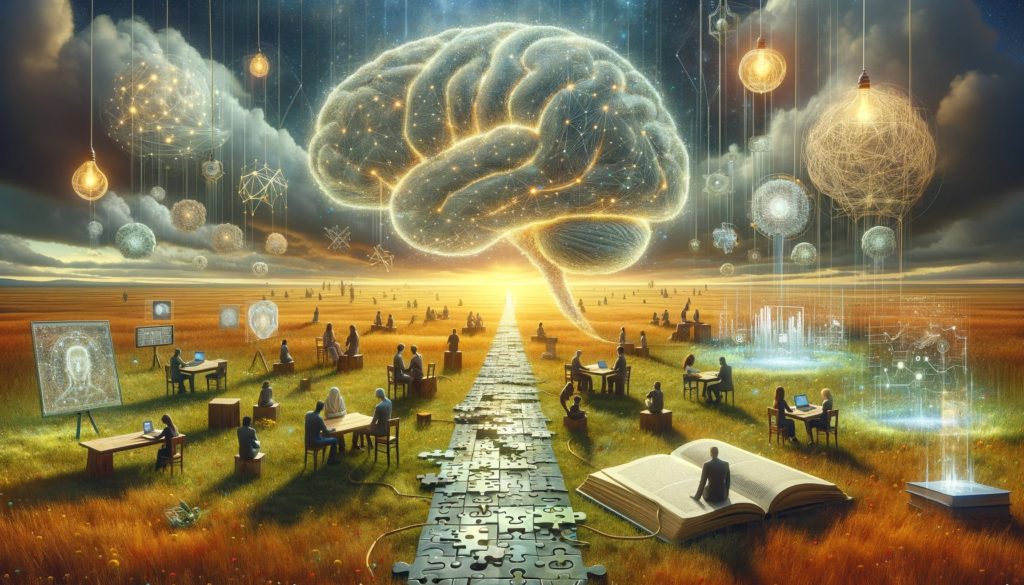Cognition is a complex process that involves not just our brain but also our physical body, environment, and actions. This is the idea behind 4E cognition, which encompasses the four factors that shape cognition: embodiment, embeddedness, extension, and enaction. It’s common for us to think that all of our cognitive processes occur solely in our mind or brain, but this is a limited and potentially dangerous perspective.
Cognition is a complex process involving the neural processes in our brain and our physical body, environment, and actions. Cognition is embodied, embedded, extended, and enactive.
The embodied perspective emphasizes the role of the physical body in shaping our thoughts and experiences. This means that our cognition is not just a product of our brain but also our bodily sensations and movements.
The embedded perspective furthers this idea and suggests that our physical and social environment shapes our cognition. Our experiences, memories, and emotions are all influenced by the context in which we exist.
The extended perspective builds on the embedded view by suggesting that external objects and tools can become a part of our cognitive processes. This means our thoughts and memories can be stored and manipulated outside our physical body in an extended mind.
Finally, the enactive perspective emphasizes the role of action and interaction in shaping our cognition. Our thoughts and experiences are not just passive products of perception but are actively constructed through our actions and interactions with the world.
This framework, known as 4E cognition, encompasses the four factors that shape cognition: embodiment, embeddedness, extension, and enaction.
An Introduction to 4E Cognition: Interview | Shaun GallagherBy understanding the multidimensional nature of cognition, which includes the brain, mind, body, environment, and action, we can appreciate the complex interplay of these factors in shaping our thoughts and experiences.
Detailed Resources
- Article: Embodied Cognition by Stanford Encyclopedia of Philosophy (2021)
Posts that link to this post
- From Mind to Information – the Role of AI in Knowledge Encoding The Evolution of Knowledge Encoding
- What Are Mindsets? Ways of thinking, mental inclinations, dispositions, or frames of mind
POST NAVIGATION
CHAPTER NAVIGATION
Tags: 4E cognition (6) | action (12) | brain (12) | cognition (12) | distributed cognition (6) | embedded cognition (3) | embodied cognition (3) | enactive cognition (2) | extended cognition (5) | mind (36)
SEARCH
Blook SearchGoogle Web Search
Photo Credits: DALL-E (Public Domain)
This coaching supports you in leading as a practice: initiating conversations that matter, deepening connection, and making space for reflection where it's often missing.


